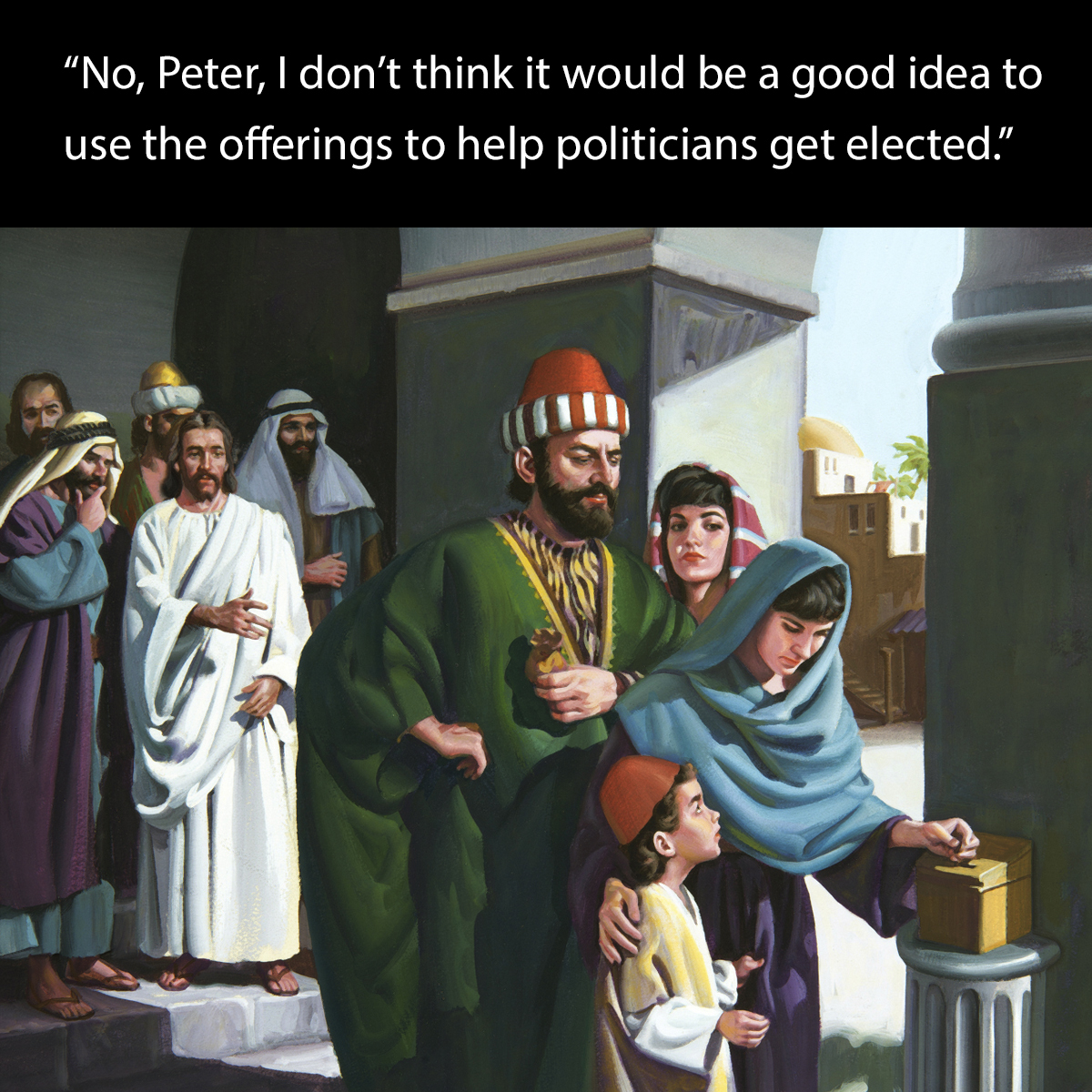The image above is a powerful critique of the idea of using church funds for political purposes. It depicts a biblical scene, where a widow and her child give their offering at the temple while religious leaders and others look on. However, the modernized caption adds a thought-provoking twist: “No, Peter, I don’t think it would be a good idea to use the offerings to help politicians get elected.”
This statement brings attention to a long-debated issue—should churches and religious institutions use their donations to influence elections?
Read more: The Church, Offerings, and Political InfluenceThe Role of the Church in Politics
The church has always played a role in shaping moral and ethical values, but should it directly participate in partisan politics? In the United States, the Johnson Amendment (1954) prohibits tax-exempt organizations, including churches, from endorsing or opposing political candidates. The idea is to keep religious institutions focused on their spiritual mission rather than becoming political action committees.
However, in recent years, there has been increasing pressure to repeal or weaken the Johnson Amendment, with some arguing that churches should have the right to openly support candidates without risking their tax-exempt status. On the other hand, critics warn that allowing churches to funnel donations into political campaigns could compromise their spiritual mission and turn houses of worship into tools for political power.
What Would Jesus Say?
The biblical scene depicted in the image reminds us of Jesus’ teachings on money, power, and humility. When Jesus saw a poor widow giving her last coins to the temple (Mark 12:41-44), He praised her generosity, not because of the amount she gave, but because of her faith and sacrifice. Contrast this with the religious elite, whom Jesus often criticized for exploiting the poor and seeking political influence rather than serving God.
Would Jesus approve of churches diverting donations meant for ministry, charity, and community service toward political campaigns? Would He want His followers to prioritize political victories over acts of love, mercy, and justice?
The Danger of Mixing Money and Politics
When churches become politically active in a partisan sense, they risk alienating members, losing their focus on Christ’s mission, and becoming entangled in worldly power struggles. This does not mean that Christians should disengage from politics—far from it! But it does mean that churches should be careful not to misuse their influence in ways that prioritize political parties over biblical principles.
As believers, we are called to be salt and light in the world (Matthew 5:13-16), advocating for righteousness and justice. But we must also remember Jesus’ words: “My kingdom is not of this world” (John 18:36). When churches use their sacred offerings to fund political campaigns, they risk losing sight of that greater kingdom.
Instead of looking to political leaders to save us, perhaps we should remember that our true hope lies in Christ alone.

Leave a Reply